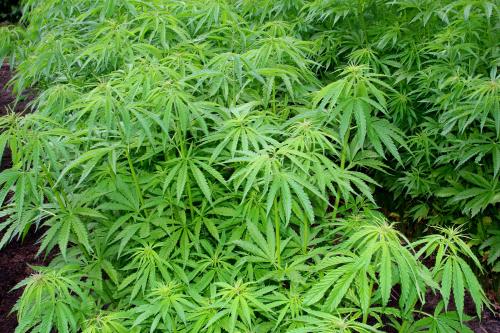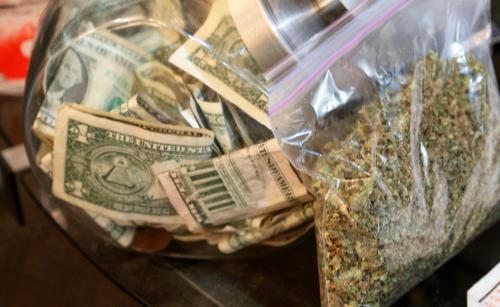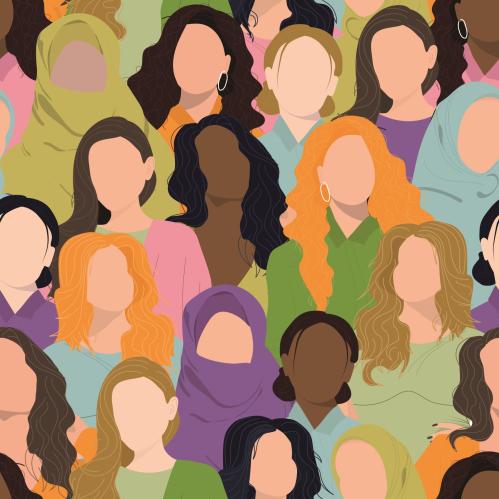On Tuesday June 22nd, Brookings will host a book release event for Marijuana: A Short History. The event will be webcast, and signup is available here.
As the conversation around the country centers on policing, criminal and racial justice, and social equity, the topic of the War on Drugs must play a central part. For decades, the War on Drugs has been a tool to target Black and Brown Americans and change life trajectories in those communities for millions of people. The protests and policy debates across this country seek to change both the outcomes processes, practices, and institutions that produce those outcomes. One significant institution contributing to racial inequity is American drug policy.
The second edition of my book Marijuana: A Short History will be released on June 30th, and it explores the explicitly racist roots of cannabis policy in the United States as well as the broader War on Drugs. It highlights how politicians across the political divide spent much of the 20th century using marijuana as a means of dividing America. By painting the drug as a scourge from south of the border to a “jazz drug” to the corruptive intoxicant of choice for beatniks and hippies, marijuana as a drug and the laws that sought to control it played on some of America’s worst tendencies around race, ethnicity, civil disobedience, and otherness.
My book discusses how U.S. government officials first painted cannabis as an insidious substance flowing across the border like immigrants from Mexico. Next, the government described cannabis as a drug for the inner city and for Blacks, while also lying about it, leading to murder, rape, and insanity. Next, political opponents of Richard Nixon and Ronald Reagan designed and enforced laws to target a variety of groups across America.
All along, one consistent target for the nation’s cannabis laws were communities of color. Despite cannabis usage rates between whites and non-whites being similar, Black Americans are arrested for cannabis offenses at a rate of nearly 4:1, compared to whites. And in a nation with nearly 700,000 cannabis-related arrests each year (a number that was over 800,000 a few years ago), these policies affect an enormous number of Americans.
Over the past several years, states and localities have passed legalization and decriminalization reforms in an effort to rein in such arrest numbers. In states that have legalized, arrests have fallen dramatically; although in many such places, racial disparities in arrests have changed little. Legalization or decriminalization are steps in the right direction, but as Marijuana: A Short History points out, such policies only help fix the present and future. Most of those reforms do little to fix the past.
In an effort to fix the harms of the drug war, some states, via their legalization laws and others through subsequent legislative changes, have used record expungement for low-level cannabis offenses in an effort to right those wrongs. However, the impact of the broader War on Drugs is more lasting and institutionalized than record expungement can overcome. (Although the book discusses Illinois’ newest cannabis legalization law and the more comprehensive and systematic efforts it includes.)
The future of cannabis policy in the United States, however, must include expungement (preferably, automatic expungement), but also more comprehensive efforts to help the communities that have been ravaged by the War on Drugs. Legalizing cannabis doesn’t undo past arrests, and record expungement doesn’t make up for the years and decades of fewer educational, employment, and other related opportunities as a result of that drug arrest. Nor does record expungement assist the people who have been negatively affected by a family member’s drug arrest and/or incarceration.
As states legalize cannabis or seek to adjust their existing cannabis legalization policies, there are a few areas in which policy can help those most profoundly impacted by the War on Drugs. First, there must be an effort to retrain police, post-legalization in ways that help address existing and ongoing racial disparities. Police departments can use changes to cannabis laws as an ideal opportunity to address some of the behaviors, choices, and biases that contribute to inexcusable disparities that exist between non-whites and white’s arrest rates.
In addition, more effective policies must be implemented in legalizing states to create new and lasting ownership opportunities for people of color and those with previous, low-level cannabis convictions. Several states have tried to craft policies to accomplish such goals, but they have largely fallen short of expectations. Access to business licenses is a critical part of that process, but so, too, is free business consulting for new entrepreneurs and greater access to reliable capital. That access to capital cannot simply be funding for opening a business, but the cannabis industry thus far shows us that even businesses that get off the ground have trouble thriving, leading to the sale, merger, and closure of businesses. Helping business owners remain competitive is key.
Next, as states tax cannabis heavily—especially relative to other consumer products—governments must decide the most effective means of spending that money. States have directed funds toward transportation, education, mental health services, and policing, among other areas. However, community reinvestment to those communities, something my colleague Makada Henry-Nickie and I call the “Cannabis Opportunity Agenda,” is critical. This can be achieved by returning cannabis revenue back to Black and Brown communities, through not opening up more cannabis companies, but by supporting the type of community and economic activity that improves individuals’ well-being and achievement while lowering crime rates.
For decades, the criminal justice system in the United States extracted from Black and Brown America money, human beings, and opportunity. The legal cannabis industry can help return what was taken. The history of cannabis policy demonstrates that racism was institutionalized and enforced in specific communities, and it is now legalization that must institutionalize the means for their recovery.
This work is licensed under the Creative Commons Attribution-NonCommerical-NoDerivatives 4.0 International License. To view a copy of the license, visit https://creativecommons.org/licenses/by-nc-nd/4.0/.






Commentary
Marijuana’s racist history shows the need for comprehensive drug reform
June 23, 2020